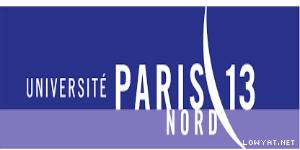Source:
http://ieeemy.org/mysection/?p=3352Design and Optimization of Radio-frequency Tag AntennasUniversity / Institute:
Universiti Tunku Abdul RahmanProject Title:
Design and Optimization of Radio-frequency Tag Antennas
Start Date:
2016-09-01
End Date:
2019-08-31
Funding Agency:
Centre for Research & Collaboration in the E&E sector
Contact Name / Email(s):
Dr Lim Eng Hock / limeh@utar.edu.my
Contact Phone(s):
012-6585618
Nationality Requirements on Candidate(s):
Applicants must be Malaysian citizens
Description:
Basic Monthly Allowance: RM 3500.00 (Additional allowances of up to RM10,000 will be given every year to pay for the registration and school fees)
Two Ph. D. candidates will be recruited. Candidate A will design the near- and far-field RFID tag antennas. Candidate B will work on the optimization schemes (DOE, Neural Networks, and Genetic Algorithm) for tuning the RFID tag antennas. A Ph. D. candidate who (a) (without a Master’s degree), has completed his/her Bachelor’s degree in a field related to E&E engineering sector with a minimum CGPA of 3.67; or (b) with a Master’s degree in a field related to E&E engineering sector and must publish at least 3 journal papers; or © possess working experience in E&E engineering sector of not less than 3 years after the graduation of Master’s degree.
Location:
Department of Electrical & Electronic Engineering, Universiti Tunku Abdul Rahman, Bandar Sungai Long, Selangor
Project Background:
Rapid developments of radiofrequency technologies have brought about a big leap in the advancement of tag antenna design. As a key part of the radio-frequency identification (RFID) system, tag antenna has received much attention because it can affect the system performance significantly. Since a tag is usually attached to an object, its antenna size must be made compact enough. Modern RFID tag antennas are required to be compact and useable in complex environment. Designing a tag antenna involves tradeoffs between impedance matching, antenna gain, and circuit size. So, optimization is always a must. The aim of this project is to design and optimize near-field and far-field RFID tag antennas using various optimization algorithms. Design of Experiments (DOE), Neural Network (NN), and Genetic Algorithm (GA) will be explored for establishing the simulation models for designing the RFID tag antennas. With the use of numerical results generated by electromagnetic solver, the models will be used for estimating changes in performances of a tag antenna statistically.
Project Objectives:
1) To explore new ways for realizing RFID tag antennas using different resonators. (Ph. D. candidate A)
2) To design and optimize RFID tag antenna using, DOE, Neural Networks, and Genetic Algorithm. (Ph. D. candidate B)
Other requirements:
1) Malaysian national.
2) The candidate must register for the full-time Ph. D. course with UTAR.
3) Good command in written and oral English.
4) Proactive, hardworking, and able to carry out research independently.
Image URL for website and email circulation:
https://www.google.com/search?q=rfid+wristb...ii1JeouqYW4M%3A 

 Jul 20 2016, 04:03 PM
Jul 20 2016, 04:03 PM
 Quote
Quote
 0.0337sec
0.0337sec
 0.80
0.80
 6 queries
6 queries
 GZIP Disabled
GZIP Disabled